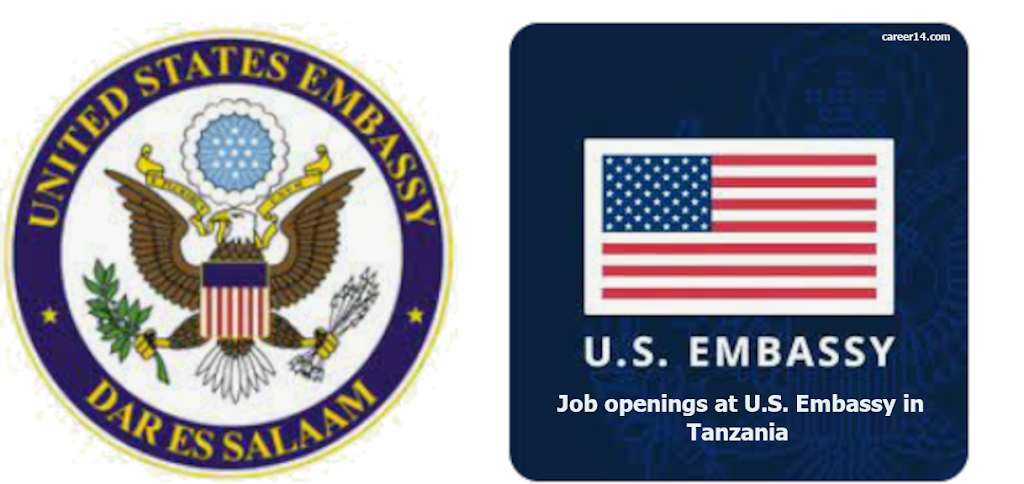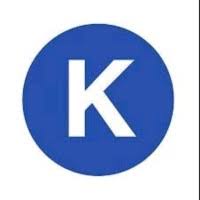programme & policy jobs in tanzania,programme & policy jobs morogoro, programme & policy jobs kariakoo, programme & policy jobs, wfp jobs in tanzania 2021, wfp jobs tanzania, fao jobs, world food programme south africa, wfp login, wfp tanzania,wfp tanzania jobs 2021, wfp jobs in dodoma 2021, ajira portal, wfp tanzania address, jobs in tanzania, wfp internship tanzania, wfp dodoma jobs december 202, wfp dodoma jobs 2021 tanzania, wfp dodoma jobs 2021 december, wfp dodoma jobs 2021, programme & policy jobs dar es salaam, programme & policy jobs kigamboni, programme & policy jobs temeke, programme & policy jobs mbagala
WFP celebrates and embraces diversity. It is committed to the principle of equal employment opportunity for all its employees and encourages qualified candidates to apply irrespective of race, colour, national origin, ethnic or social background, genetic information, gender, gender identity and/or expression, sexual orientation, religion or belief, HIV status, physical or mental disability.
ABOUT WFP
The World Food Programme (WFP) is the world’s largest humanitarian agency fighting hunger worldwide. WFP pursues a vision of the world in which every man, woman and child has access at all times to the diverse food needed for an active and healthy life. The mission of WFP is to help the world achieve Zero Hunger in our lifetimes. Every day, WFP works worldwide to ensure that no child goes to bed hungry and that the poorest and most vulnerable, particularly women and children, can access the nutritious food they need.
WFP Tanzania has been connecting smallholder farmers to markets since the launch of the Purchase for Progress (P4P) pilot in 2009. WFP has been supporting Micro, Small and Medium Enterprises (MSMEs) to strengthen the ecosystem in which smallholder farmers access affordable inputs, services and markets. Finally, with the Government of Tanzania, WFP supports local and smallholder purchasing to meet local and regional demand for WFP food assistance.
WFP’s strategy to support smallholder farmers highlights the importance of women and youth in rural development, livelihoods, strengthening value chains, and improving food systems. The strategy is committed to empower over 405,000 farmers in the next five years (2022-2027), generating over USD 150 million of aggregated annual purchasing demand in the Country.
In support of the strategy, the upcoming “Strengthening Food Systems to Empower Smallholder Farmers and Young People” project will support MSME development and scale support to the maize, sorghum, beans and horticulture value chains, targeting smallholder farmers and youths, especially women.
Furthermore, the upcoming “Strengthening Smallholder Agriculture Value Chain, Gender Equity and Peace in Refugee Hosting Districts” project will enhance food security and nutrition amongst vulnerable groups, strengthen community-based organizations to become active contributors to social cohesion, gender equality and peace, and increase smallholder farmers agricultural and financial capacities for market engagement and resilient livelihoods.
STANDARD MINIMUM QUALIFICATIONS
Education: Completion of secondary school education and prefered a first University degree with additional years of related work experience and/or training/courses.
Language: Fluency in both oral and written communication in English and Swahili and any other official UN language would be an asset.
ORGANIZATIONAL CONTEXT
Under the guidance of the Head of Monitoring & Evaluation/Vulnerability Analysis and Mapping, the technical supervision of the Head of Smallholders Unit and the overall supervision of the head of the sub office, the incumbent will play a key role in reporting on quantitative and qualitative data relating to the project interventions, disaggregated by sex and age, activity, and location, and in accordance with SAMS corporate reporting guidelines.
JOB PURPOSE
The incumbent is expected to provide professional support to mainstream gender and youth data and indicators related to Micro, Small and Medium Enterprises (MSMEs), financial institutions, bank guarantee schemes (including insurance products) and other actors along the value chains WFP supports.
KEY ACCOUNTABILITIES (not all-inclusive)
1.Strengthen M&E systems for SHF unit to ensure data is accurate, protected, and confidential during pre- and post-distribution to partners and stakeholders
2.Maintain database of quantitative and qualitative data to monitor progress against targets, (e.g., list of farmer organizations, acreage, input requirements, yields, aggregated crops volumes, etc.) and inform programme/supply chain activities
3.Provide project data management and/or general office support to report and support established targets and WFP’s policies and procedures
4.Collect and summarize programme(s) data, collaborating with cooperating partners where required, conduct analysis, and prepare reports to support programme reviews and informative decision-making
5. Perform accurate, timely recording of data following corporate standards and guidelines
6. Work and exchange information with internal counterparts to support effective collaboration, implementation, and monitoring of ongoing project activities
7. Suggest improvements to field monitoring processes and procedures for efficient implementation of the assistance programmes
8. Support M&E communication for monitoring and reporting of activities with local partners, agencies, NGOs, and government institutions
9. Facilitate the adoption of appropriate latest digital tools for the data collection, analysis, and visualization
10. Perform other related duties as required.
4Ps CORE ORGANISATIONAL CAPABILITIES
Purpose
- Understand and communicate the Strategic Objectives: Coaches team in the most effective ways to communicate WFP’s Strategic Objectives to WFP team and partners in the field.
- Be a force for positive change: Implements new methods or tools to improve team’s work processes and productivity.
- Make the mission inspiring to our team: Maps team’s activities and tasks to specific successes in beneficiary communities to showcase positive impact.
- Make our mission visible in everyday actions: Explains to teammates how each unit contributes to the overall WFP mission.
People
- Look for ways to strengthen people’s skills: Identifies skill development opportunities such as training modules or on-the-job experiences for self, colleagues and direct reports.
- Create an inclusive culture: Facilitates team building activities to build rapport in own unit.
- Be a coach & provide constructive feedback: Facilitates the pairing of junior colleagues with coaches within own team.
- Create an “I will”/”We will” spirit: Proactively anticipates potential challenges and develops mitigation plans to ensure that team meets goals and targets.
Performance
- Encourage innovation & creative solutions: Identifies opportunities to be creative in own work and to help team be more innovative and accurate in their respective tasks and areas of work.
- Focus on getting results: Monitors team’s deliverables and provides feedback to ensure outcomes are delivered consistently and accurately.
- Make commitments and make good on commitments: Provides accurate guidance to team on expected responsibilities and tasks, whilst also upholding own commitment to the team.
- Be Decisive: Sets an example and provides guidance to junior team members on when to escalate issues when faced with challenging issues in the workplace or in the field.
Partnership
- Connect and share across WFP units: Facilitates partnerships with other WFP units to accomplish missions in the field.
- Build strong external partnerships: Sets an example and provides guidance to team on how to build relationships with external partners.
- Be politically agile & adaptable: Articulates to colleagues or direct reports the value of contributing to other WFP teams and agency partnerships in fulfilling WFP’s goals and objectives.
- Be clear about the value WFP brings to partnerships: Organizes, monitors, and prioritizes own and team’s efforts to ensure that they will fulfil the needs of internal and external partners.
- At least four years of work experience, with demonstrated knowledge of monitoring and evaluation. Experience related to food security, agricultural value chains, market systems and/or nutrition-integrated agriculture strongly preferred.
- University degree in one or more of the following disciplines: international development, economics, statistics, gender studies, sociology, or another related field.
- Familiarity with standard office software packages, analysis and visualization tools e.g. Microsoft and Tableau.
- Understanding and good working knowledge of database management, including results-based management.
- Familiarity with digital data collection tools and systems (e.g., ODK, Kobo, ONA)
- Work experience with UN on related tasks considered an added advantage
- Competent on problem solving, negotiation skills and ability to travel extensively in remote areas.
• Has worked with technical teams (i.e. nutrition, VAM, etc.).
• Has contributed to implementation of programmes.• Has observed or assisted with policy discussions.
- Duration of contract: One year renewable up to five years until end of the project (subject to performance).
- All applications should be submitted through e-recruitment portal.
- Only qualified shortlisted candidates will be contacted.
All employment decisions are made on the basis of organizational needs, job requirements, merit, and individual qualifications. WFP is committed to providing an inclusive work environment free of sexual exploitation and abuse, all forms of discrimination, any kind of harassment, sexual harassment, and abuse of authority. Therefore, all selected candidates will undergo rigorous reference and background checks.
No appointment under any kind of contract will be offered to members of the UN Advisory Committee on Administrative and Budgetary Questions (ACABQ), International Civil Service Commission (ICSC), FAO Finance Committee, WFP External Auditor, WFP Audit Committee, Joint Inspection Unit (JIU) and other similar bodies within the United Nations system with oversight responsibilities over WFP, both during their service and within three years of ceasing that service.







